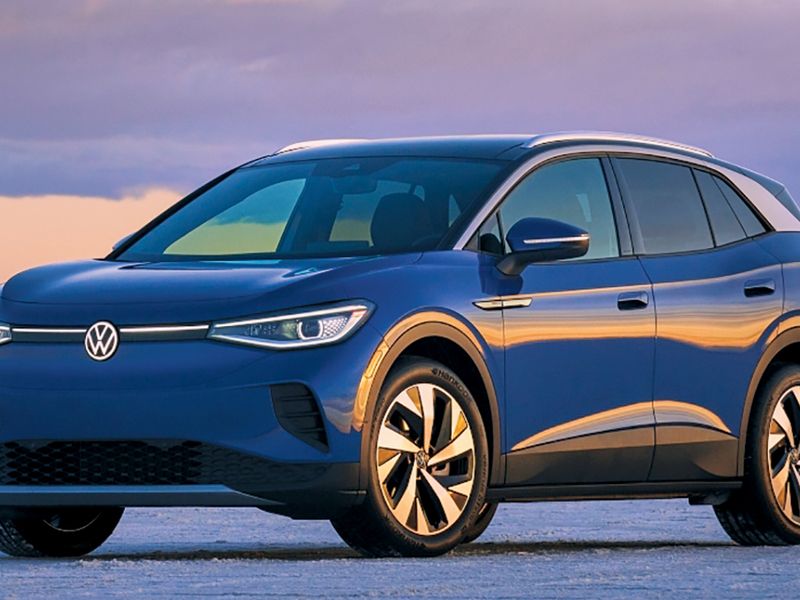
Volkswagen’s aggressive electrification plans may take awhile to fully form in the U.S., as the ID4 remains the brand’s only EV offering in the region until 2023, with a third all-electric model, a sedan, due by 2024.
Meanwhile, product planners will continue to work on the German mass-market brand’s crossover lineup, which now includes the Taos, introduced this year. But they will have to decide whether to convert the Atlas and Atlas Cross Sport from their current powertrains to electric ones. The brand is also likely to trim its sedan lineup further, with the Arteon expected to sunset in the U.S., while the Jetta could see a planned redesign turn into a less expensive freshening if sedan sales continue to fall.
Golf GTI/Golf R: The eighth-generation Volkswagen Golf arrives in the U.S. in the fourth quarter, but only in the form of the higher-end GTI and R. The redesigned GTI sports a retuned version of the current car’s turbocharged 2.0-liter direct-injection four-cylinder engine. Two transmissions are available: a six-speed manual and an optional seven-speed dual-clutch automatic. The GTI and R would be due for a midcycle freshening in 2025, under the brand’s traditional product cadence.
Jetta/Jetta GLI: A freshened Jetta compact sedan arrives in U.S. dealerships late this year, sporting interior refinements and a new grille. It and its more powerful GLI version would be due for a redesign in 2024, based on Volkswagen’s traditional product cadence, but given falling sales of sedans, the company could choose to extend the current version’s life another half cycle with a freshening instead, as it did with the Passat.
Passat: The midsize sedan was freshened in 2019, but it is discontinued after the 2022 model year.
Arteon: VW’s top-line sedan has had a tough go of it in the U.S. It arrived late, in 2019, because a backlog of emissions testing procedures in Europe delayed its certification, and it never really recovered. The Arteon, freshened in 2020, will get a reengineering late in the fourth quarter, adding more horsepower and getting a new seven-speed automatic transmission. But given the state of sedan sales and coming emissions regulations, it is likely to end its run in 2024.
Taos: The compact crossover, new in 2021, splits the segment with the larger Tiguan and will alternate with it in the product cycle. It will be due for a freshening in 2024.
Tiguan: The freshened compact crossover arrives in the U.S. this fall with extensive styling updates plus an improved infotainment system and safety upgrades aimed at separating it in the segment from the new Taos. It will be due for a redesign in 2024.
Atlas/Atlas Cross Sport: Volkswagen’s larger crossover family is due to receive a midcycle freshening, including an all-new interior, in 2023. Though the vehicles remain popular, it is unclear whether they will stick with their current internal combustion powertrain and be redesigned in the later half of the decade or be replaced with electric versions.
ID4: North American production of the battery-powered ID4 compact crossover is to begin in Chattanooga in early 2022, with a reengineered version on sale that year featuring a smaller 62-kilowatt-hour battery pack. It would be due for a freshening in 2025, given the brand’s traditional product cycles.
ID Buzz: The retro-styled Microbus is finally due to go on sale in the U.S. in 2023, some five years after the concept was shown, but deliveries likely won’t take place until late in the year and could slip into 2024. The ID4 is built in Hamburg, Germany, alongside smaller cargo and passenger versions for Europe. The U.S. version will have a longer wheelbase and a roomier interior.
ID Aero: Volkswagen has promised its dealers a third battery-electric vehicle based on the MEB architecture to go along with the ID4 and ID Buzz, one with better aerodynamics. The timing is still fuzzy, but the ID Aero sedan should be in the U.S. by 2024 and look a lot like an electrified Arteon.
Midsize pickup: VW dealers’ desire for a midsize pickup seems to have been quashed by Germany, unless executives can make a business case for a North American-produced electric version built in Chattanooga. While Ford has agreed to make the next-generation VW Amarok pickup, based on the Ford Ranger, its sales will be limited to markets outside the U.S.

